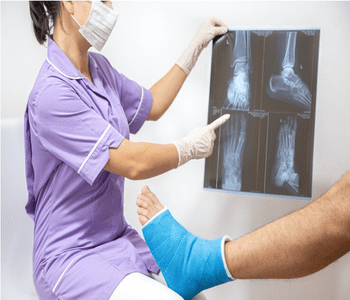Exploring Knee Braces and How They Work
The knee, a complex joint that bears the weight of the body and facilitates movement, is prone to injury and instability due to its intricate structure and frequent use. For individuals experiencing knee pain, instability, or recovering from injury, knee braces in Mississauga serve as a valuable tool to provide support, stability, and protection. In this blog post, we’ll talk about the world of knee braces, exploring their functions, types, and how they work to promote knee health and mobility.
Understanding Knee Braces
Knee braces are orthopedic devices designed to support, protect, and stabilize the knee joint. These braces come in various shapes, sizes, and materials, each serving specific functions depending on the individual’s needs and the nature of their knee condition. From mild discomfort to severe injuries such as ligament tears or osteoarthritis, knee braces in Mississauga offer a range of benefits to promote healing and enhance function.
How Knee Braces Work:
- Stability and Support: One of the primary functions of knee braces is to provide stability and support to the knee joint. This is particularly beneficial for individuals with weak or injured knees, as the brace helps to stabilize the joint, prevent excessive movement, and reduce the risk of further injury.
- Compression and Alignment: Some knee braces apply compression to reduce swelling, improve circulation, and alleviate pain. Additionally, braces with built-in hinges or straps can help align the knee joint properly, promoting optimal biomechanics and reducing strain on surrounding structures.
- Protection and Injury Prevention: For individuals engaging in high-impact activities such as sports or manual labor, knee braces in Mississauga offer protection against traumatic injuries such as ligament sprains or meniscal tears. By providing external support and reinforcement to the knee joint, braces help absorb shock, distribute forces evenly, and reduce the risk of injury during physical exertion.
- Post-Injury Rehabilitation: Following knee surgery or injury, rehabilitation plays a crucial role in restoring strength, mobility, and function. Knee braces support healing, protect against re-injury, and help reintroduce movement and weight-bearing activities during rehabilitation.
Types of Knee Braces:
- Prophylactic Braces: Prophylactic knee braces, worn by athletes, help prevent knee injuries during sports activities. These braces typically feature sturdy construction and hinged supports to provide maximum protection and stability.
- Functional Braces: Functional knee braces aid recovery from ligament injuries like ACL tears or MCL sprains. These braces offer support to the injured ligaments while allowing for a certain degree of movement and flexibility.
- Unloader Braces: Unloader knee braces target osteoarthritis and degenerative joint disease with a design tailored for effective support.These braces work by shifting weight away from the affected part of the knee joint, reducing pain and discomfort associated with arthritis and promoting better alignment and function.
- Rehabilitation Braces: Rehabilitation knee braces are used during the post-injury or post-surgery recovery phase to support the healing tissues, facilitate controlled movement, and prevent excessive strain on the knee joint. These braces are often adjustable to accommodate changes in swelling and range of motion during rehabilitation.
Conclusion
Knee braces play a vital role in promoting knee health, stability, and mobility for individuals of all ages and activity levels. Whether recovering from injury, managing chronic conditions, or seeking preventive measures, knee braces in Mississauga offer a versatile and effective solution to support the knee joint and enhance overall quality of life. By understanding the functions, types, and benefits of knee braces, individuals can make informed decisions about their use and incorporate them into their wellness routine to achieve optimal knee health and function.



